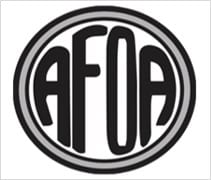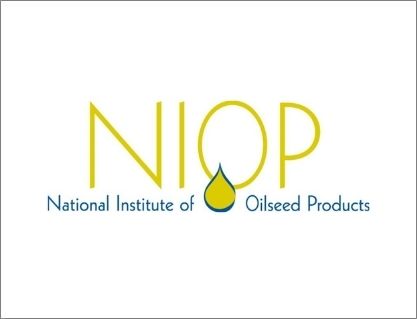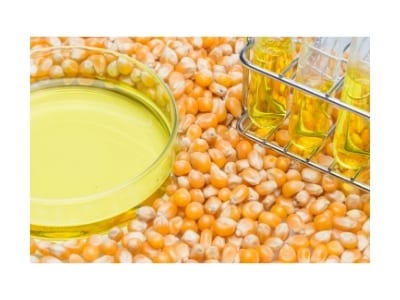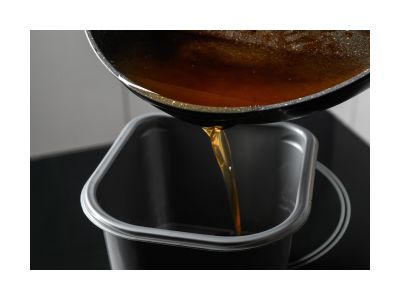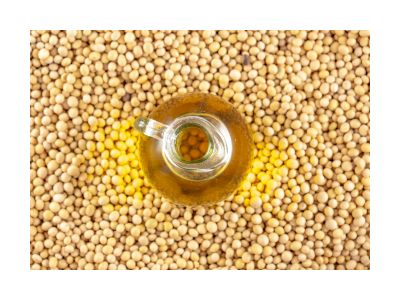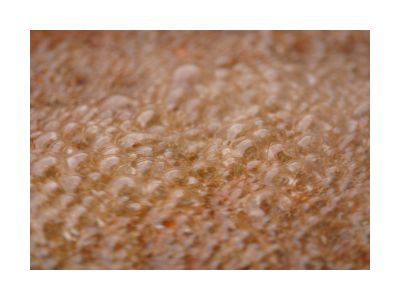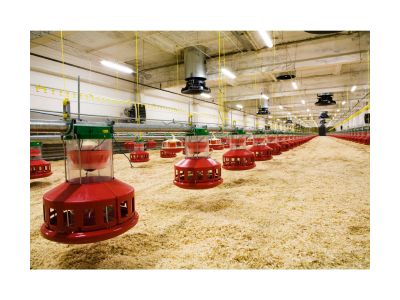Yellow Grease Feedstock
Targray is a leading international supplier of yellow grease – an increasingly popular renewable feedstock for biodiesel manufacturing. Indeed, using yellow grease feedstock can help biofuel producers achieve lower C.I. values for their products, which in turn makes them more attractive on international markets.
We work closely with our partners in biodiesel manufacturing to ensure that their yellow grease supply needs are consistently being met. Our commitment to sustainability and our expertise in the biofuels industry make us the ideal partner for buyers looking to produce more compliant and affordable biodiesel for the transportation sector.
What is Yellow Grease?
Yellow grease, also known as waste vegetable oil or recycled vegetable oil, is a byproduct of the food industry. It is the oil that is left over after cooking food in deep fryers, griddles, and other cooking equipment. While it may seem like a waste product, yellow grease has many valuable applications, including its use as a feedstock in biodiesel production.
Yellow Grease as a Biodiesel Feedstock
Yellow grease is an ideal feedstock for biodiesel production because it is readily available and cost-effective. It is collected from restaurants, commercial kitchens, and other food service establishments and is typically filtered and refined to remove impurities and contaminants before being sold.
To produce biodiesel from yellow grease, the oil must first undergo a process known as transesterification. This chemical reaction breaks down the oil into fatty acid methyl esters (FAMEs), which are the main components of biodiesel. The process involves mixing the oil with an alcohol, typically methanol, and a catalyst, such as sodium hydroxide. The resulting biodiesel is a clean-burning fuel that produces fewer emissions than traditional fossil fuels. It is also biodegradable and non-toxic, making it a safer and more environmentally friendly option than petroleum diesel.
Yellow Grease Feedstock Sustainability Benefits
Using yellow grease as a feedstock for biodiesel production has several benefits for sustainability. Firstly, it helps to reduce waste by repurposing a byproduct that would otherwise be discarded. Secondly, it reduces the reliance on fossil fuels, which are a finite resource and contribute significantly to greenhouse gas emissions. Thirdly, it promotes the use of renewable resources and supports the development of a more sustainable energy system.
In addition to its use in biodiesel production, yellow grease has other applications in sustainability. It can be used as a feedstock for animal feed, providing a renewable source of energy for livestock. It can also be used in the production of soap and other personal care products, replacing the use of synthetic chemicals that are harmful to the environment.
Feedstock Industry Partner Associations
Related Content
Feedstock
Targray is a major international supplier of biofuel feedstock – the source material used to produce renewable fuels like biodiesel, renewable diesel fuel and ethanol.
Animal Tallow
Animal tallow – a rendered form of fat which includes beef tallow, pork lard, and chicken fat – is an increasingly attractive feedstock option for renewable fuel manufacturers.
Used Cooking Oil (UCO)
Targray is well-positioned to meet this demand growth with wholesale used cooking oil solutions aimed at creating value and strengthening the supply chain.
Soybean Oil (SBO)
In the United States, the growth of the biodiesel sector has resulted in a larger share of the domestic soybean oil supply to be consumed as biofuel feedstock.
Brown Grease
Targray is an ISCC-certified international provider of brown grease supply solutions, primarily for use as a feedstock in biodiesel production.
Poultry Fat
Our dedicated team of trade, logistics, and compliance experts work closely with customers to ensure a reliable and efficient supply of poultry fat feedstock, while also ensuring compliance with regulatory requirements.

